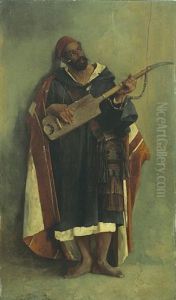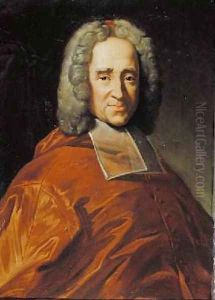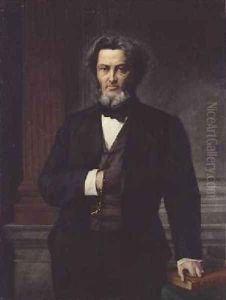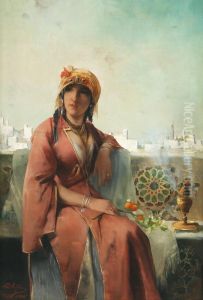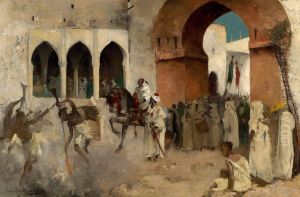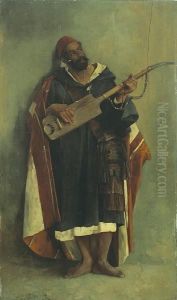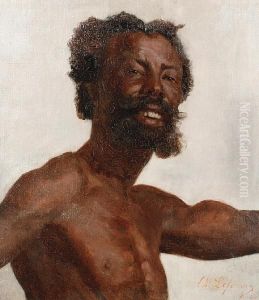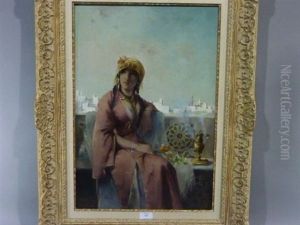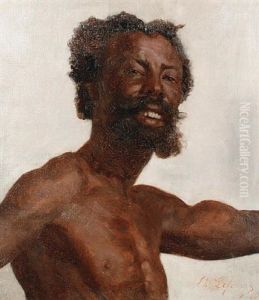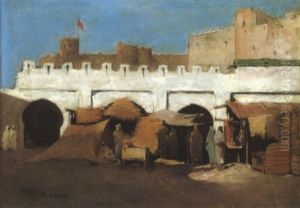Charles Lefebvre Paintings
Charles Edouard Lefebvre was a French composer, born on June 19, 1843, in Paris, France, and passed away on September 8, 1917, in Aix-les-Bains, Savoie. Though not as widely recognized today as some of his contemporaries, Lefebvre made significant contributions to the musical world of the late 19th and early 20th centuries, particularly in the realm of chamber music, choral works, and vocal music. His compositional style was deeply rooted in the Romantic tradition, reflecting the influences of his teachers and the broader artistic movements of his time.
Lefebvre studied at the Paris Conservatoire, where he was a pupil of notable composers such as Ambroise Thomas and François Bazin for composition, and Antoine François Marmontel for piano. His talents were recognized early on when he won the prestigious Prix de Rome in 1870 for his cantata "Le Gladiateur," demonstrating his adeptness at vocal composition and his command over orchestral color. This accolade afforded him the opportunity to study in Rome, an experience that further enriched his compositional style by exposing him to a wider array of artistic influences.
Throughout his career, Lefebvre composed a variety of works including operas, symphonic pieces, chamber music, and songs. Among his notable compositions are the opera "Djelma," premiered in 1887, which showcased his skill in dramatic composition, and his chamber works, particularly his quintets for winds and piano, which are still performed today and contribute to his lasting legacy within the chamber music repertoire. His music is characterized by melodic richness, refined textures, and a harmonious blend of the lyrical and the dramatic, traits that endeared him to audiences and performers alike.
Despite his achievements, Charles Lefebvre's music has not maintained a prominent place in the concert repertoire, overshadowed perhaps by the towering figures of his era. Nevertheless, his work continues to be rediscovered and celebrated by musicians and scholars for its craftsmanship and expressive beauty. Lefebvre's career reflects the vibrant musical culture of France in the late 19th century, and his contributions to the music of this period remain an important, if underexplored, part of the historical record.
